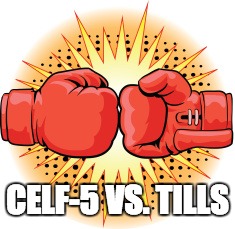 In August 2021, the CEU Smart Hub (Powered by the Lavi Institute) has launched a new certificate program: The Science of Reading (SOR) Literacy Certificate for SLPs. Because of the multitude of questions we have received in advance of the certificate rollout (Financial Disclosure: I am a 50% partner in the CEU Smart Hub/Power Up Conferences), I am writing this post today in an attempt to answer some of the commonly asked questions regarding this certification.
In August 2021, the CEU Smart Hub (Powered by the Lavi Institute) has launched a new certificate program: The Science of Reading (SOR) Literacy Certificate for SLPs. Because of the multitude of questions we have received in advance of the certificate rollout (Financial Disclosure: I am a 50% partner in the CEU Smart Hub/Power Up Conferences), I am writing this post today in an attempt to answer some of the commonly asked questions regarding this certification.
Who is the certificate for? The certificate is open to SLPs who are interested in gaining in-depth knowledge in the areas of assessment and treatment of children with language and literacy disorders. This certification offers not just continuing education hours in the advanced practices pertaining to the assessment and treatment of literacy but also a final examination and 2 lengthy in-depth projects requiring professionals to appropriately and comprehensively design assessment plans and treatment goals to work with literacy impaired clients. Continue reading The Science of Reading Literacy Certificate for SLPs: FAQs
 Lately, I’ve been seeing more and more posts on social media asking for testing suggestions for students who exhibit
Lately, I’ve been seeing more and more posts on social media asking for testing suggestions for students who exhibit  It’s early August, and that means that the start of a new school year is just around the corner. It also means that many newly graduated clinical fellows (as well as SLPs switching their settings) will begin their exciting yet slightly terrifying new jobs working for various school systems around the country. Since I was recently interviewing clinical fellows myself in my setting (an outpatient school located in a psychiatric hospital, run by a university), I decided to write this post in order to assist new graduates, and setting-switching professionals by describing what knowledge and skills are desirable to possess when working in the schools.
It’s early August, and that means that the start of a new school year is just around the corner. It also means that many newly graduated clinical fellows (as well as SLPs switching their settings) will begin their exciting yet slightly terrifying new jobs working for various school systems around the country. Since I was recently interviewing clinical fellows myself in my setting (an outpatient school located in a psychiatric hospital, run by a university), I decided to write this post in order to assist new graduates, and setting-switching professionals by describing what knowledge and skills are desirable to possess when working in the schools.  Those of you familiar with my blog, know that a number of my posts take on a form of extended responses to posts and comments on social media which deal with certain questionable speech pathology trends and ongoing issues (e.g., controversial diagnostic labels, questionable recommendations, non-evidence based practices, etc.). So, today, I’d like to talk about sweeping general recommendations as pertaining to literacy interventions.
Those of you familiar with my blog, know that a number of my posts take on a form of extended responses to posts and comments on social media which deal with certain questionable speech pathology trends and ongoing issues (e.g., controversial diagnostic labels, questionable recommendations, non-evidence based practices, etc.). So, today, I’d like to talk about sweeping general recommendations as pertaining to literacy interventions.  On a daily basis I receive emails and messages from concerned parents and professionals, which read along these lines: “My child/student has been diagnosed with: dyslexia, ADHD, APD etc., s/he has been receiving speech, OT, vision, biofeedback, music therapies, etc. but nothing seems to be working.”
On a daily basis I receive emails and messages from concerned parents and professionals, which read along these lines: “My child/student has been diagnosed with: dyslexia, ADHD, APD etc., s/he has been receiving speech, OT, vision, biofeedback, music therapies, etc. but nothing seems to be working.”
 I frequently see numerous posts on Facebook that ask group members, “What are your activities/goals for a particular age group (e.g., preschool, middle school, high school, etc.) or a particular disorder (e.g., Down Syndrome)? After seeing these posts appear over and over again in a variety of groups, I decided to write my own post on this topic, explaining why asking such broad questions will not result in optimal therapeutic interventions for the clients in question.
I frequently see numerous posts on Facebook that ask group members, “What are your activities/goals for a particular age group (e.g., preschool, middle school, high school, etc.) or a particular disorder (e.g., Down Syndrome)? After seeing these posts appear over and over again in a variety of groups, I decided to write my own post on this topic, explaining why asking such broad questions will not result in optimal therapeutic interventions for the clients in question.